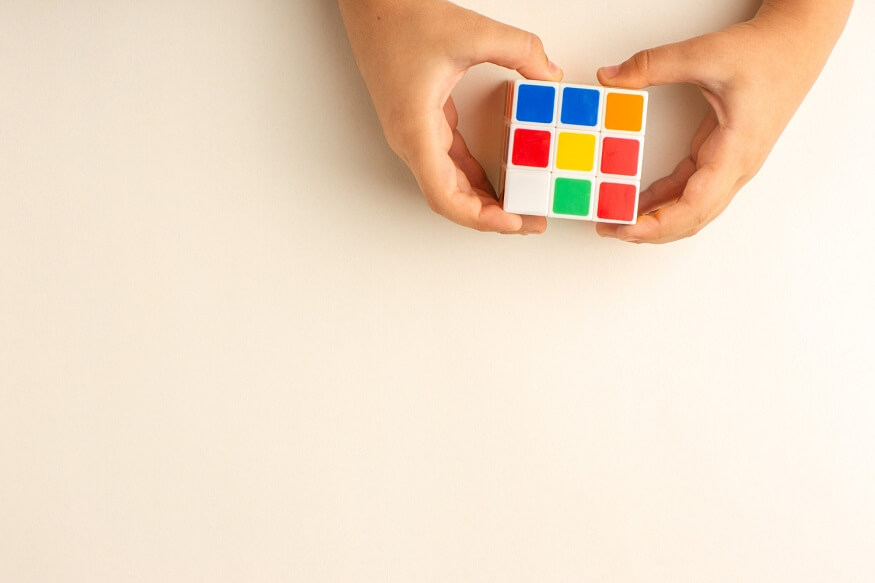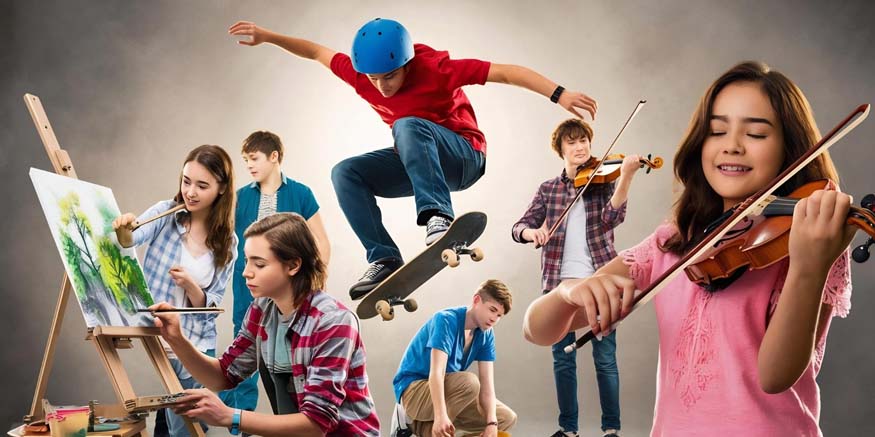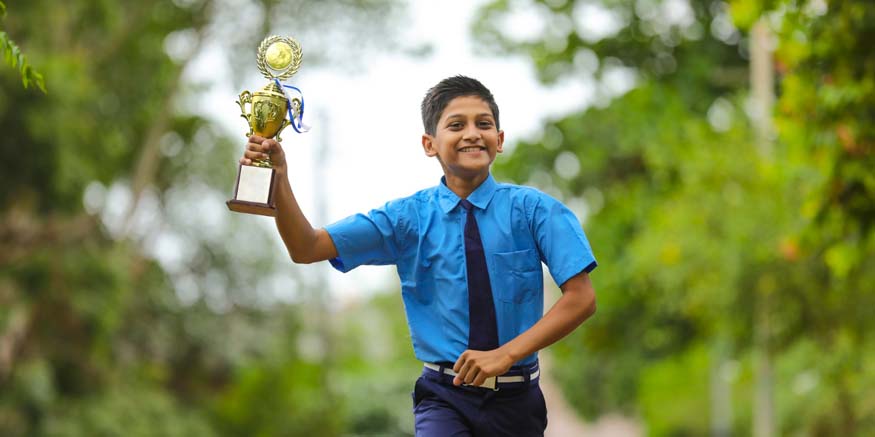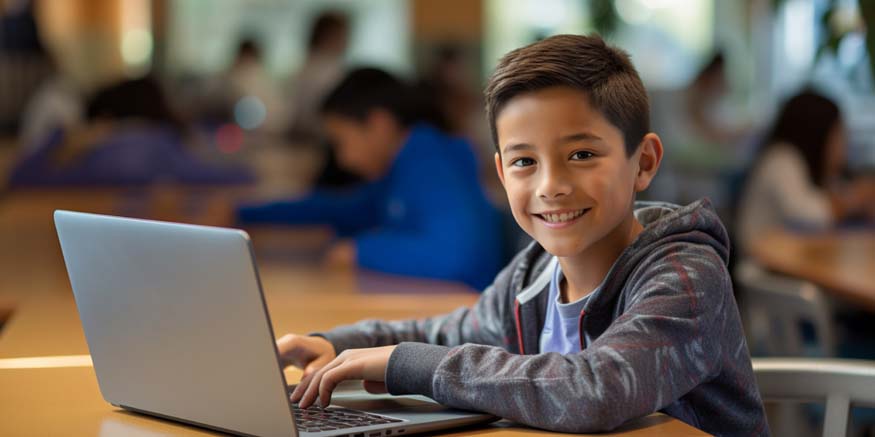Rubik’s cube is a three-dimensional combination-based puzzle invented by Erno Rubik in 1974. Erno Rubik was a Hungarian sculptor and professor of architecture. Rubik’s Cube is the world’s highest-selling puzzle game and was also included in the US National Toy Hall of Fame in the year 2014.
Solving a Rubik’s cube has been a popular hobby amongst kids for decades now. The challenge of solving a Rubik’s cube has enamoured a lot of people, especially children, the world over. The current Guinness Book of World Records for solving a Rubik’s cube stands at a mind-boggling 3.13 seconds. What seems like a simple fun activity – solving a Rubik’s cube – has amazing physical and mental benefits.
- Memory
- Patience
- Problem-Solving Skills
- Learn to strategize
- Exercise for the brain
- Speed of thinking
- Hand-eye coordination
- Improves concentration
- Builds persistence
- Divert the brain from harmful distractions
- Sense of pride
- Activates muscle movement
Solving a Rubik’s cube involves a sequence of steps meticulously followed one after the other. There is a certain method to what might seem a maddening twisting and turning of the cubes. Solving a Rubik’s cube requires the solver to memorise the past and future steps. It is a matter of practice as some steps work and some don’t. The solver, as a result, needs to recall the steps that worked in the past and employ them at the opportune moment in the sequence. Thus, solving Rubik’s cube can help enhance memory and recall for children.
Solving a Rubik’s cube is a game of trial and error. No one gets it right in one go. It requires the solver to possess great patience to try and try, fail numerous times and still pick it up again and aim to succeed. The process involved in this tirade can build envious qualities of patience and perseverance among children.
Solving a Rubik’s cube is in many ways akin to solving a complex problem. You try a solution, but it may or may not work at all. Then you try other ways of solving it. Some solutions work to a certain extent. You build on those solutions, understand the pattern with time and after multiple trials you manage to figure out a strategy to solve the problem. While solving Rubik’s Cube, children can pick up these useful strategies and approaches which can enhance their problem solving skills.
Rubik’s cube is not a case of hit and trial. It requires meticulous planning and strategizing to solve in quick time, whether you are an amateur trying to solve a Rubik’s cube for the first time or a professional trying to solve it in record time. During these endeavours, your mind learns to create and execute strategies that lead to success. These are skills which are transferable to any other walk of life, both personal and professional.
In today’s world of mind-numbing social media, solving a Rubik’s cube can be a great exercise for your brain. Solving a Rubik’s cube invokes both the analytical and creative sides of your brain. Just like our bodies need regular exercise to stay fit, our brain also needs regular cognitive exercise for the development of our ability to think critically, analytically, and creatively. Engaging in solving puzzles, such as solving a Rubik’s cube, is a great way to achieve this objective.
If you want to solve a Rubik’s cube fast, you need to be able to think fast. You need to be able to process information at a quick pace and take quick actions. These actions might have repercussions which might derail your path to success. Trying to solve a Rubik’s cube in the earliest possible time enhances our ability to think fast, and that too under pressure.
Solving a Rubik’s cube can be a great way to improve your hand-eye coordination. The eyes evaluate the pattern, the brain processes it and sends signals to the hands, and the hands execute those signals by rotating the cubes to align them in order. This process is repeated several times requiring quick reflexes and smooth hand-eye coordination.
Also Read: Games and Activities for Kids that Develop Hand-Eye Coordination
All this information processing and thinking ahead to solve a Rubik’s cube requires an enhanced degree of concentration. A slight break in concentration and you will take the wrong step which might derail your road to successfully cracking the Rubik’s cube riddle. Engaging in solving the Rubik’s cube, just like trying to solve any complex problem, develops your ability to concentrate and focus for longer periods.
Being a rigorous trial and error exercise, solving a Rubik’s cube demands elevated levels of persistence from children. During these motions, children learn that anything can be achieved through persistent effort and hard work. This is an important lesson Rubik’s cube can teach children.
A child fully engrossed in the act of solving a Rubik’s cube can blank out all the distractions that the world presents. The distraction of social media, technology, bad habits, and more such vices can be overcome by letting the children completely immerse themselves in the world where it’s just them and the Rubik’s cube.
Solving a Rubik’s cube is no “child’s play”. Not everybody can do it in a quick time. Thus, those who can finally achieve the feat after persistent effort gets a sense of pride from this achievement. It is frequently seen as an achievement that children willingly flaunt among their circle of friends. It makes them popular in their social circle.
Solving a Rubik’s cube involves subtle and flexible movement of the finger muscles, the palm, thumb, and even forearms to a certain extent. These nimble movements add flexibility to the children’s muscles. This flexibility can be a significant boon for children which can help them outsmart their peers in various other “hand” oriented activities such as typing very fast, can enhance their writing speed, their ability to work on science projects involving minute movements, and many more such applications.
Also Read: Mancala games for kids: Meaning, Count and capture games that promote strategic thinking
At EuroSchool we follow a multifaceted approach to learning. Activities such as the Rubik’s Cube are integrated into the curriculum to foster problem-solving, logical thinking and an analytical mindset amongst students









